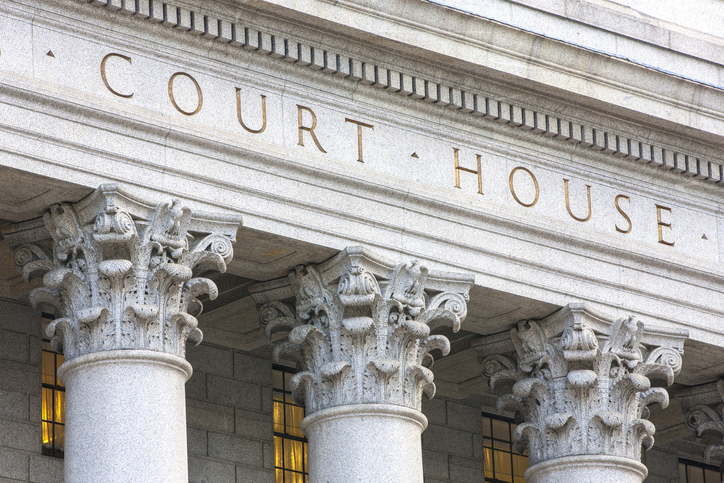The thought of having to go to court, whether you’re a plaintiff or a defendant, can be rather intimidating. Needing to find a lawyer, prepping your case, facing a judge and jury—every step of the way may feel scary and stressful.
Knowing what to expect can not only help your experience feel less daunting, it can help your outcome be more successful, too.
Let’s take some of the mystery out of the court process and walk you through what it is like to be involved in a basic misdemeanor or federal court case.
Understanding misdemeanor charges
As a resident of North Carolina, if misdemeanor charges have been brought against you, you can expect:
- Being arrested and charged: Local law enforcement will be issued a warrant for your arrest. And, you’ll likely be arrested. At this time, charges will be read against you.
- Attending an initial hearing: In your first court interaction charges will be reviewed with you. During your court appearance, you’ll learn what the maximum punishment for your crime carries. You’ll also be told you have a right to obtain an attorney.
- Participation in pre-trial negotiations: The defense team will discuss with the prosecutor on your behalf. They’ll talk about any opportunities there may be to reduce your charges, the possibility of dismissing charges, and/or a path to an out-of-trial settlement or agreement.
- Trial: If during pre-trial negotiations no agreement or settlement is reached, your case will go to trial. This means that the burden of proof will fall on the prosecution. They will work to prove the charges to be true, by presenting all elements of evidence they can. After the prosecution and the defense team present cases, the judge will way all evidence and arguments and ultimately come to a final ruling.
Common aspects of most trials include:
- Evidence issues. The defense and prosecution present proof to support their arguments.
- Opening statements. When the trial begins, attorneys representing both sides of the case make their opening arguments, summarizing each perspective on the case.
- Cross-examination. The prosecuting and defense attorneys call witnesses to support their cases and have the opportunity to cross-examine each other's witnesses.
- Closing arguments. At the close of the prosecution’s and defense’s presentation of witnesses and evidence, both attorneys will summarize their cases and make final statements.
- Deliberation. During this step in the process, the judge will instruct the jury to weigh the evidence, and they will retire to a chamber to consider the case. Only under an unanimous agreement can they return to the judge with a guilty or not guilty ruling.
- Final verdict. The judge closes the case by presenting the final ruling and leveling a consequence for the defendant to receive, aligned with his or her crime.
What a federal case entails
No matter what state you live in, felony charges often carry a much harsher consequence than misdemeanor charges. Federal cases can be brought up to higher courts, but are first presented in a lower court.
In North Carolina, federal charges that appear in lower courts share much of the same aspects as the misdemeanor points outlined above, but with a few key additional steps:
- Probable cause hearing: If after pre-trial negotiations a settlement isn’t achieved, there will be a probable cause hearing. During this court hearing, the prosecution’s evidence will be cross-examined and challenged. Witnesses may be called to testify against the defense.
- Grand jury: Another big difference between federal and misdemeanor cases is that a federal case involves a grand jury. This is when the prosecution and defense have an opportunity to meet with and select specific jury members. The jurors then hear all evidence and proceedings of the case, and ultimately decide if the defendant is innocent or guilty and if they should be indicted.
If an indictment is given, after the grand jury reviews the initial case, it can move on to higher courts for additional proceedings. If that happens, there are further steps in the court process to consider, including:
- Arraignment: The defendant of the case will plead guilty or not guilty to charges (and must be present in court to do so.)
- Motions and settlement conference: During this step, both the prosecution and defense will present motions to the judge. These motions may be to suppress certain pieces of evidence, to request a different trial location or venue, and so on.
- Trial: Higher court felony trials are generally more in-depth than a misdemeanor or lower-court felony trials. During this key step, both the prosecution and defense will present evidence and witnesses, argue their case, and also refute the other side’s evidence.
- Sentencing: When it comes to sentencing a case, your attorney will advocate for the lowest possible consequence or sentence for your actions. This important step is when a guilty or innocent verdict is given and a final punishment is declared.
Following a trial’s sentencing, there is one potential follow-up step: Appeals. In this instance, the side that lost the case may have the right to revisit or “appeal” the final verdict or ruling. During the appeal review, if the appeal is granted, the defendant may be able to participate in a new trial—beginning the above process over again.
Still have questions?
If you think you may have a court case or might be facing criminal or federal charges, finding an attorney that can help you get the important information and support you need is essential. Our team at Wilson Williams Law is here to help. Give us a call today at (888) 253-4071 to learn more about how we can help you build or manage a case.
We look forward to working with you.
Note: This blog is intended to be informational only and shall not be construed as legal advice.


